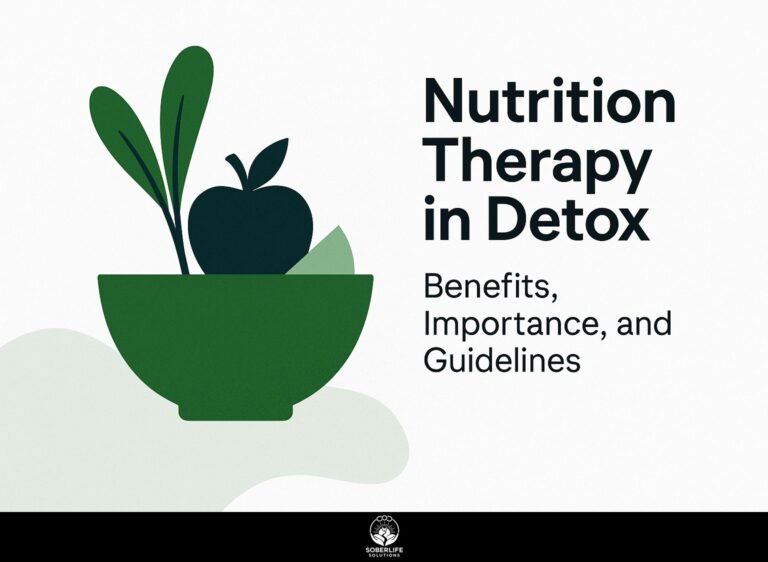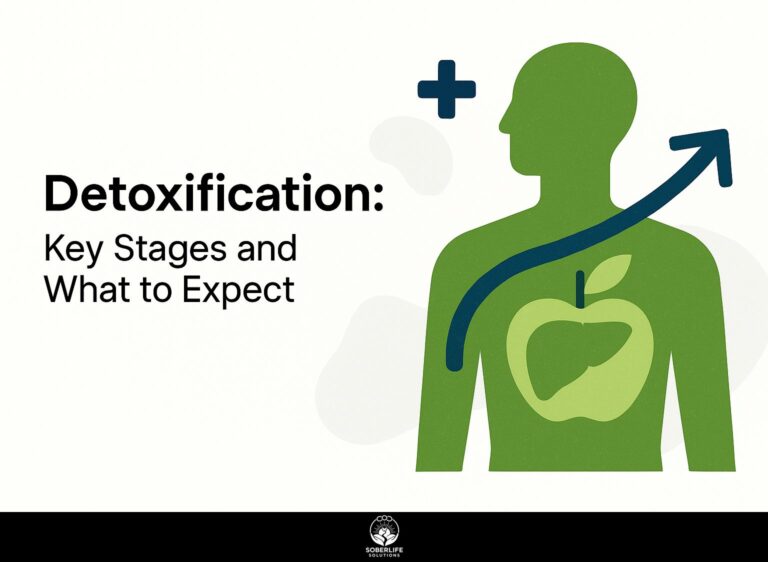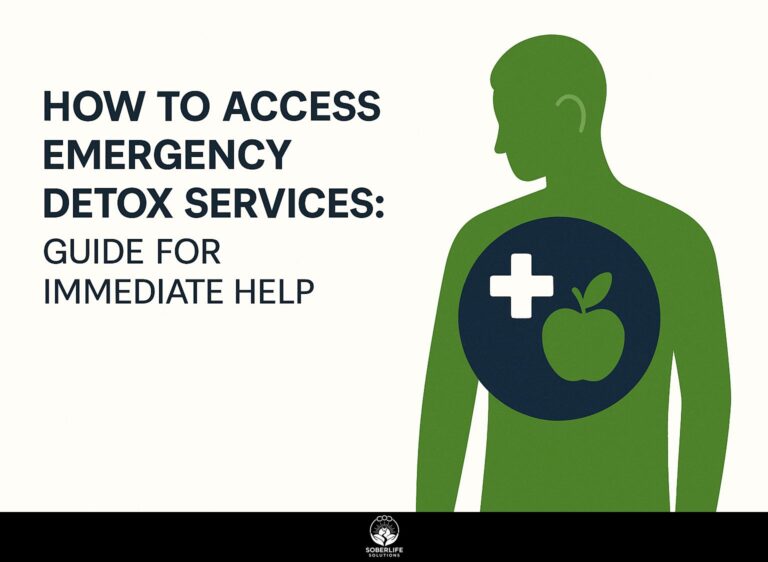Detox Services Costs: Financial Planning and Insurance Options
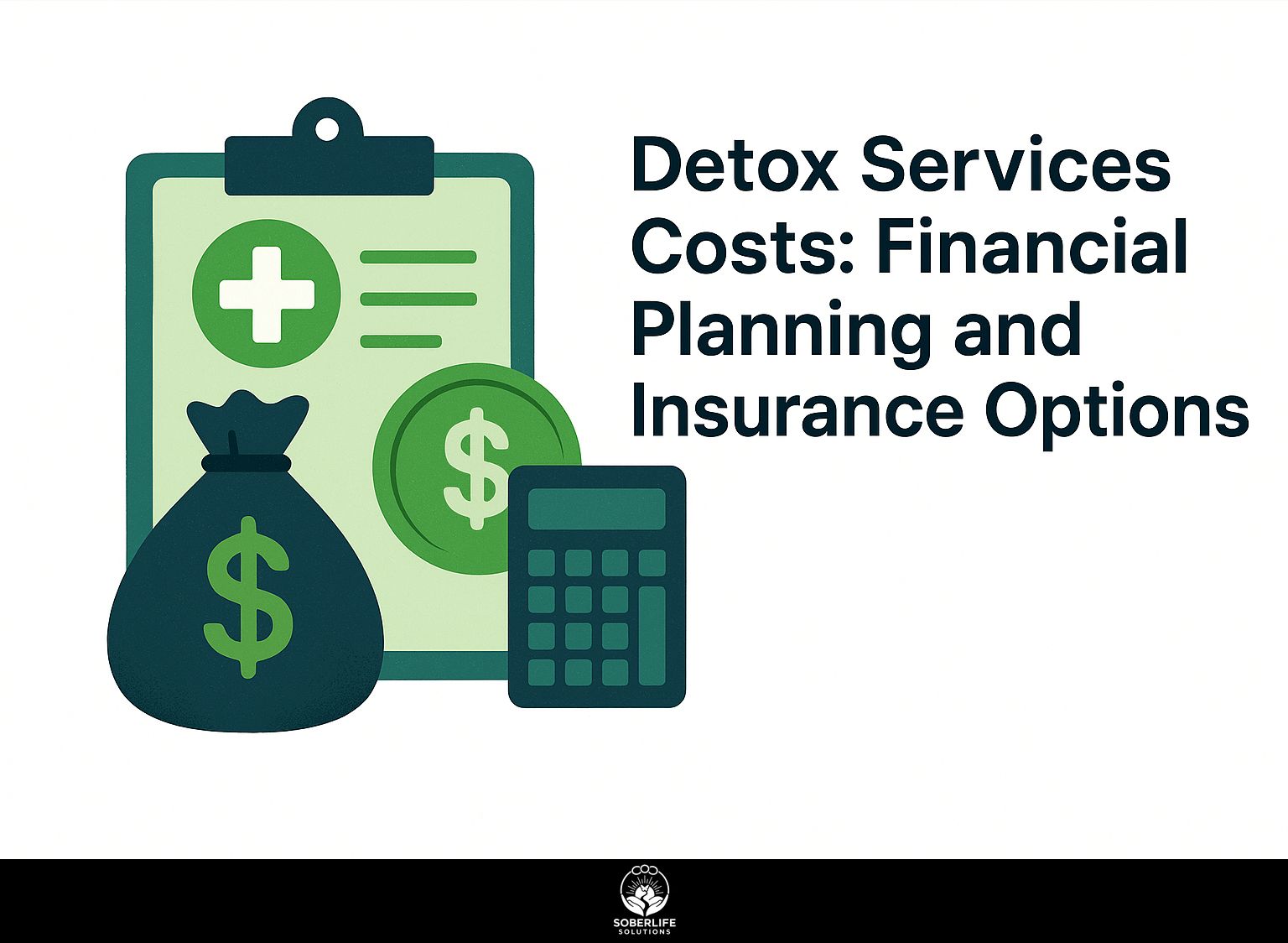
Figuring out the cost of detox services can be confusing, especially when looking for drug rehab or alcohol rehab options. This guide explains the costs of addiction treatment and payment choices, based on information from specialists like David Hampton and groups like Hazelden Betty Ford. Whether you’re budgeting for a loved one’s recovery or exploring your own choices, this article gives important details to help with your financial planning for detox services.
Key Takeaways:
Understanding Detox Service Pricing
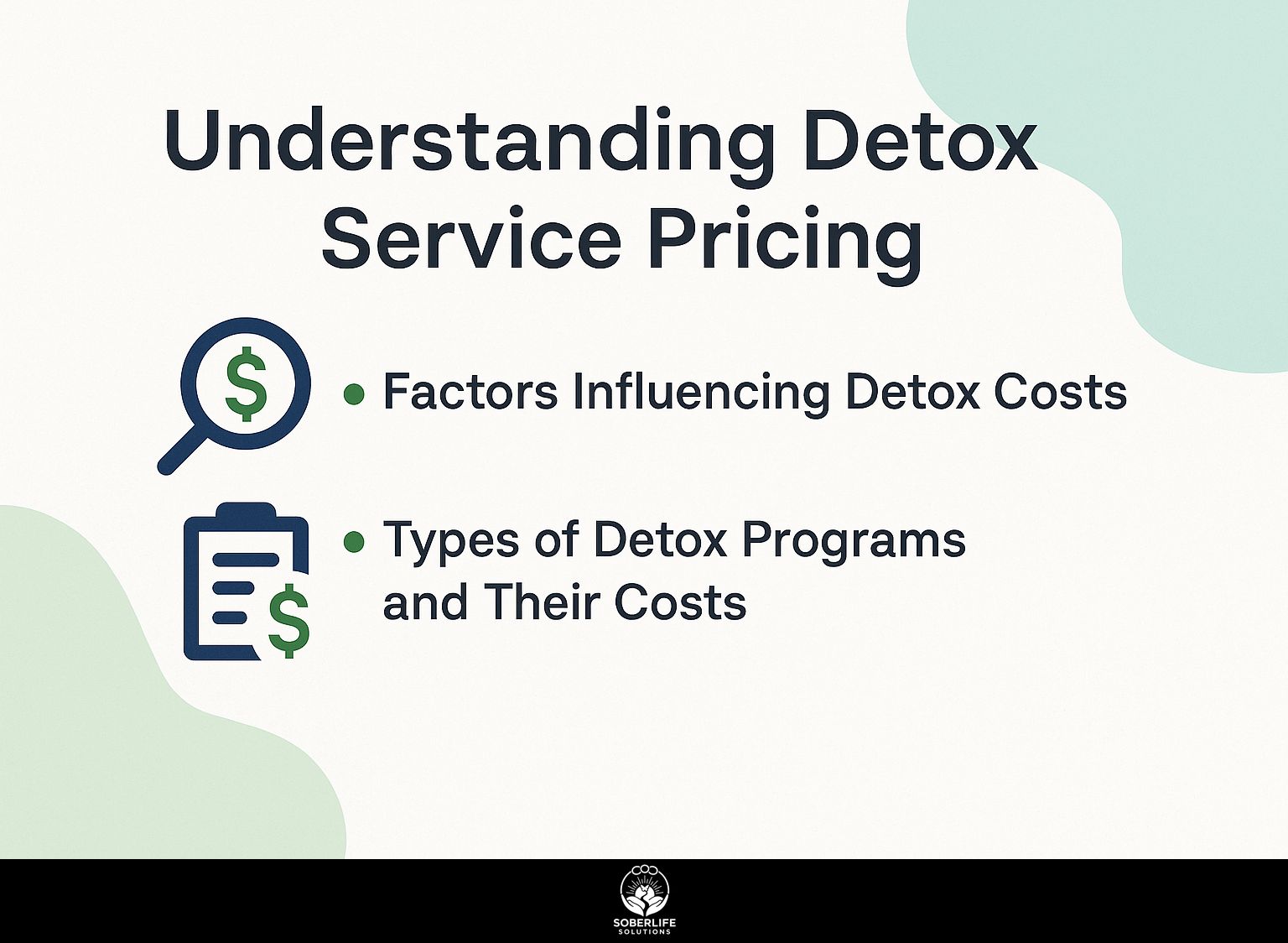
The cost of detox depends on things like the kind of facility, how long you stay, and the services provided, all of which can have a big impact on someone’s budgeting. For those looking for more tailored advice, understanding how to choose the right facility can make a significant difference. A comprehensive guide for families navigating these choices can be found by exploring our detailed article on how to choose detox and rehab centers. For those interested in deeper insights, a comprehensive overview of health care costs and affordability is provided by the Kaiser Family Foundation.
Factors Influencing Detox Costs
Key factors affecting detox costs include facility type (inpatient vs. outpatient), duration of treatment, and the specific therapies included, such as medical supervision or counseling.
Inpatient facilities can average $30,000 per month, while outpatient care may range from $1,500 to $5,000.
The length of stay impacts overall costs significantly; detox programs typically last between 5 and 14 days.
Services differ greatly: a full package might offer:
- 24/7 medical supervision
- Group therapy
- Holistic therapies
while a basic service may offer only counseling.
Geographic location plays a role; urban facilities often charge more due to higher operational costs than those in rural areas.
Types of Detox Programs and Their Costs
Detox programs vary widely in cost; inpatient programs can average $500 to $800 per day while outpatient treatments might range from $100 to $300 per session.
Specialized programs, such as methadone treatment, often have different pricing structures. These can range from $300 to $800 per month, depending on the location and clinic.
Inpatient detox usually takes 5 to 14 days, costing between $3,500 and $11,200. In contrast, outpatient treatments may extend over weeks or months, potentially resulting in increased overall costs.
It’s important to ask insurance companies about what they will pay for, as some might pay for part or all of outpatient program costs. As mentioned, understanding insurance laws for rehab can be crucial in determining coverage and reducing financial burden.
Financial Planning for Detox Services
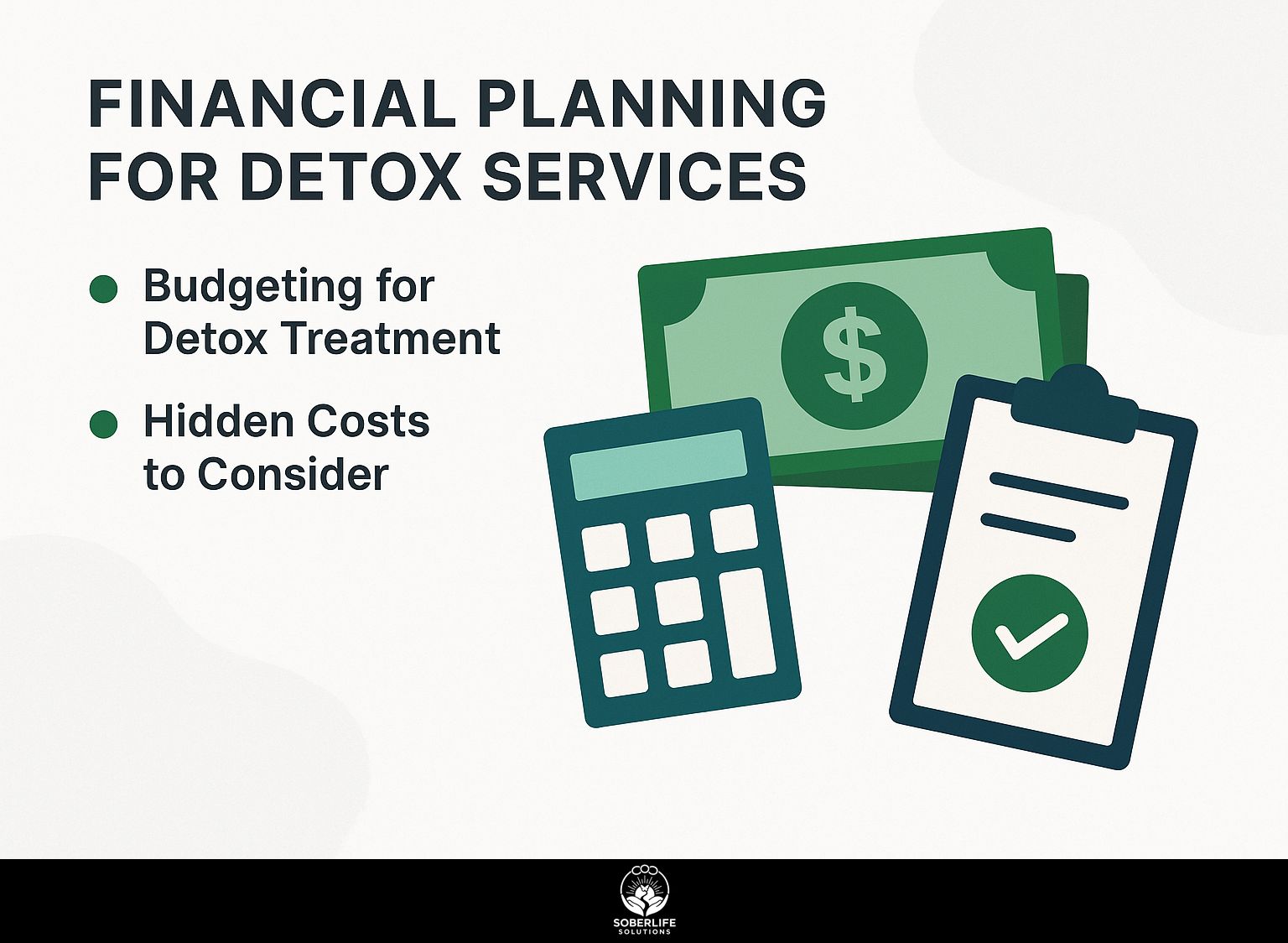
Good financial planning for detox services can greatly lower stress while recovering, helping people handle both predictable and surprise expenses. For families seeking guidance, consider our guide to choosing detox and rehab centers, which offers valuable insights into making informed decisions.
Budgeting for Detox Treatment
Creating a detailed budget for detox treatment involves calculating the program expenses and other costs, such as travel and follow-up care.
Start by working out the total expenses for detox to cover all aspects. This includes the daily treatment rate, which usually falls between $500 and $2,000, depending on the facility and services provided.
Next, account for ancillary expenses like therapy sessions (around $100 each), travel costs to the center, and food, which can add up significantly.
It’s also wise to factor in potential income loss during treatment; use budgeting tools like Mint or YNAB to keep track of these expenses effectively throughout the process.
Hidden Costs to Consider
Many individuals overlook hidden costs associated with detox services, which can add hundreds to thousands of dollars to the overall expense.
To better prepare for these unexpected expenses, it’s important to plan properly. Begin by factoring in initial assessment fees, which can reach up to $200.
Next, consider potential medical expenses related to detox complications, as these can arise unexpectedly. Travel expenses for family visits or aftercare should not be ignored, as they can vary significantly based on distance and travel means.
Budgeting an additional 10-15% of your total detox costs can help cover these unforeseen expenses without financial strain.
Insurance Options for Detox Services
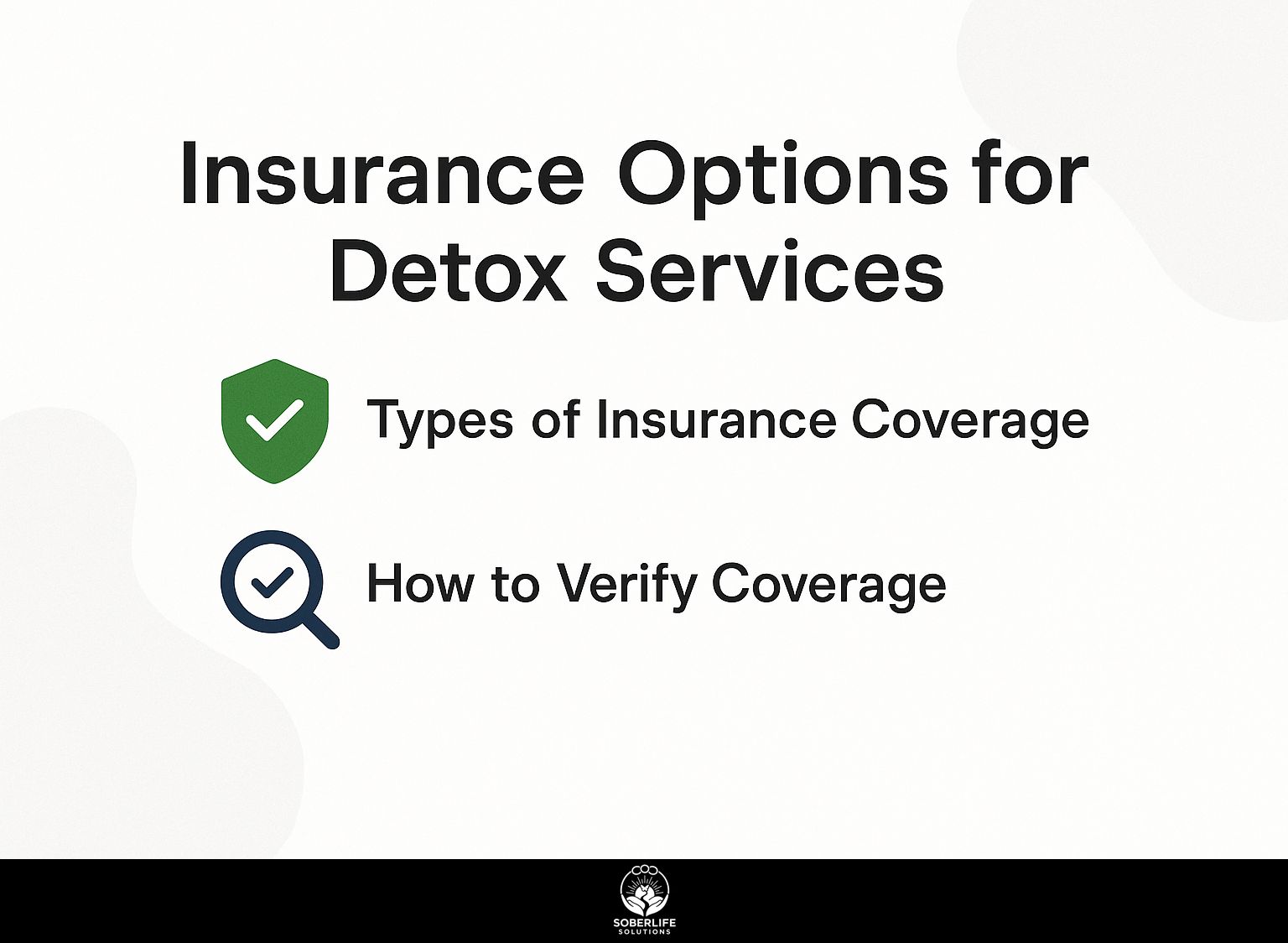
Insurance coverage significantly affects personal costs for detox services, with different choices depending on the provider and plan type. Understanding the nuances of these options is essential, and our deep dive into insurance laws for rehab offers valuable insights into how regulations impact treatment access and affordability.
Types of Insurance Coverage
Types of insurance coverage for detox services include Medicaid, Medicare, and various private insurance plans, each offering different levels of support and coverage limits.
Medicaid typically covers detox services for low-income individuals, but eligibility varies by state; coverage may include inpatient treatment without out-of-pocket costs. To better understand the variation in service types and spending, recent insights from KFF might be helpful.
Medicare is for people aged 65 and older, or those with disabilities. It provides coverage for up to 190 days in a nursing home for each benefit period, with a deductible of about $1,600.
Private insurance plans vary widely, so consider factors like copays and deductibles. Tools like Healthcare.gov can help you compare plans based on your specific needs and financial situation.
How to Verify Coverage
Checking insurance for detox services is an important step that can help people save a lot of money while they are getting better.
To effectively verify your coverage, begin by contacting your insurance provider. Ask specific questions such as:
- “What detox services are covered?”
- “Are there any deductibles or copayments?”
Next, request a detailed benefits statement, which outlines your coverage in writing. Confirm which detox facilities are in-network to avoid unexpected costs. For example, failing to check this could result in being charged full rates at an out-of-network facility, leading to substantial financial strain during an already challenging time.
Alternative Funding Options
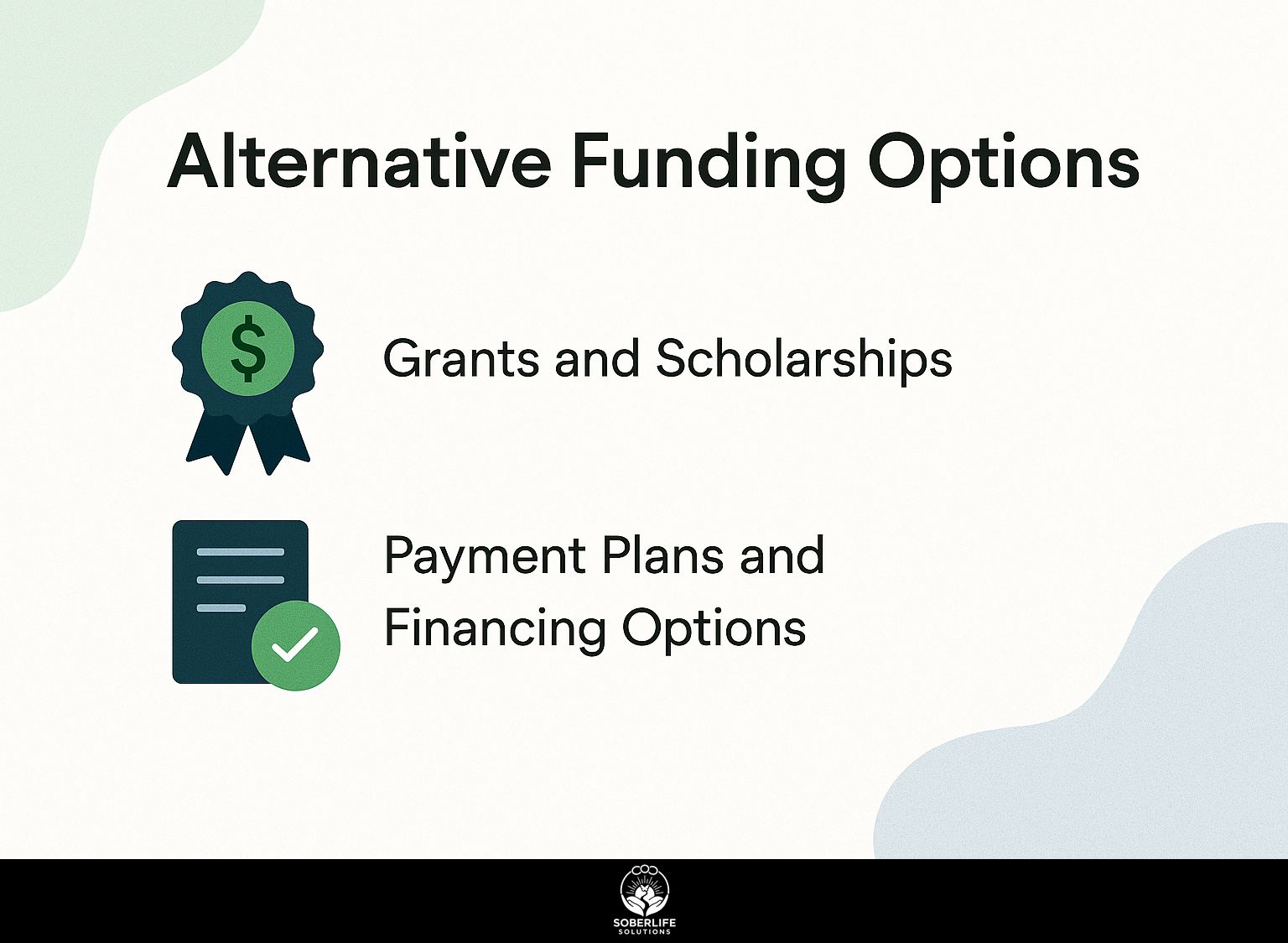
People who don’t have enough insurance or money can use other ways to pay for detox services, giving them important help for recovery. To navigate these options effectively, understanding how to choose the right detox and rehab centers is crucial. Our guide on How to Choose Detox and Rehab Centers offers essential insights for families.
Grants and Scholarships
Grants and scholarships can significantly alleviate the financial burden of detox services, with organizations like the Recovery Foundation offering financial aid for those in need.
To find and apply for such funding, start by researching local and national organizations, such as SAMHSA or the Substance Abuse and Mental Health Services Administration, that focus on substance abuse treatment. For expanded context, SAMHSA’s detailed guide on available grants for mental health and substance use offers valuable insights into funding opportunities.
Prepare necessary documentation, which may include proof of financial need and a detailed treatment plan.
Make sure to follow the application instructions from each organization closely; this is important for improving your chances of getting approved. Past applicants often highlight the importance of demonstrating both need and a commitment to treatment in their narratives.
Payment Plans and Financing Options
Many rehab centers offer flexible payment plans and financing options, allowing individuals to receive treatment without upfront costs that can be prohibitive.
In-house payment plans usually break down the total cost into monthly payments, helping patients plan their finances.
Third-party financing options, like CareCredit, provide low-interest loans with repayment terms ranging from six months to up to three years. Many centers also offer sliding scale fees based on income, allowing individuals to pay less if they earn below a certain threshold.
Interest rates for these options can vary, with CareCredit typically offering rates between 10-25%, depending on creditworthiness and plan duration.
Frequently Asked Questions
What are detox services and why are they important?
Detox services are professional programs designed to help individuals overcome substance abuse and addiction. They are important because they offer a safe place for people to cleanse their bodies of harmful substances and start their path to healing.
What is the average cost of detox services?
The cost of detox services can vary depending on the type of program, length of stay, and location. On average, detox services can range from $1,000 to $1,500 per day. Some programs might charge lower fees or adjust fees based on your income.
How can I financially plan for detox services?
It is important to research different detox programs and their costs to find one that fits within your budget. You can look into getting money help with grants, scholarships, or loans. Making a budget and reducing unnecessary spending can help you save money for detox services.
Does insurance cover the cost of detox services?
Many insurance companies offer coverage for detox services as part of their mental health and substance abuse treatment benefits. Coverage may differ based on your particular insurance plan. It is best to contact your insurance provider to determine what services are covered under your plan.
What if I do not have insurance or cannot afford detox services?
If you do not have insurance, there are still options available to help cover the cost of detox services. Some programs offer scholarships or payment plans, and there are also government-funded programs that provide free or low-cost detox services. You should look into these options to find what works best for your money matters.
Are there any additional costs associated with detox services?
In addition to the cost of the detox program, there may be additional expenses such as medications, lab work, and follow-up care. It is important to discuss any potential additional costs with the program before starting treatment to avoid any surprises on your bill.

